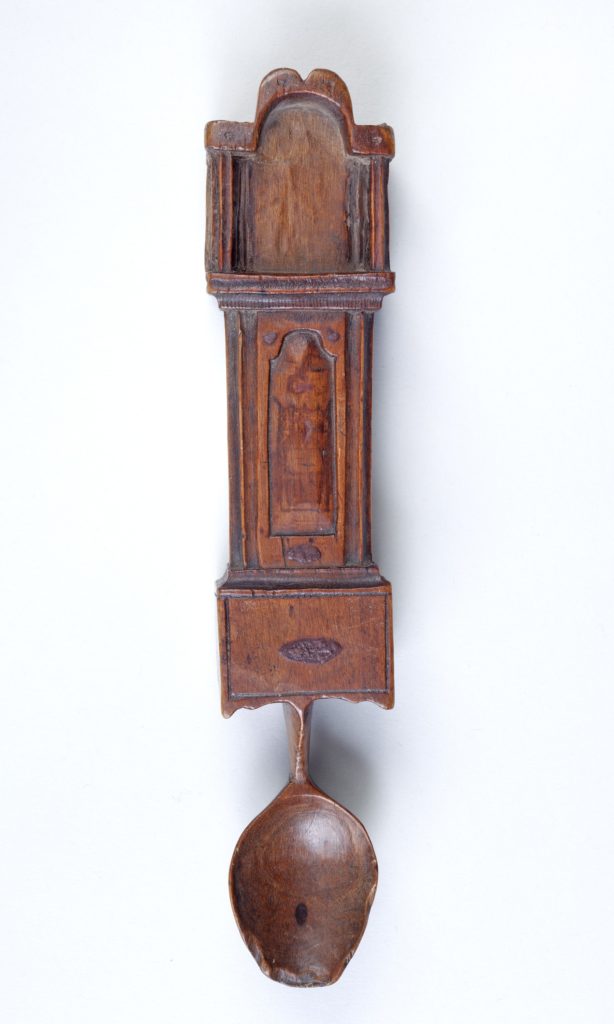Explore
Home

Carved Spoon, English
Artist unkown
about 1800
Beech
Height. 20cm
This small spoon has a handle which was carved in the shape of a miniature longcase clock. It has small areas of polychrome decoration which simulate the inlay you would expect to find on a full-size longcase clock.
There are various historical references to small carved objects such as spoons being given as romantic gifts, and these often had symbols which were meaningful to the couple incorporated into the design. In Treen and Other Wooden Bygones of 1961, E H Pinto describes a Victorian practice of couples being given a small wooden pair of shoes connected by a chain: ‘It was formerly a charming marriage custom to carve and give them to the bride and groom, with a knob of coal in one … and sugar in the other, to ensure that the couple never lacked warmth and sweetness or sustenance.’
From as early as the seventeenth century in Britain, love spoons have been exchanged as tokens of affection between loved ones. Traditionally love spoons presented by a suitor to his betrothed to prove his skills as a woodworker and his ability to provide for his future wife. Over time, though, the love spoon lost its practical function and became purely a decorative treen to be displayed on a wall.
The year of carving of most love spoons cannot be established unless dated by the maker. The handle of this love spoon has been carved into the shape of a scroll-top longcase clock, dating this piece to around 1800. Often love spoons would bear the initial of the recipient, and this piece seems to bear a ‘C’ or ‘G’ in the middle of the clock case. The symbol of a clock on a love token represented ‘a passage of time’, perhaps alluding to time spent apart or having to wait for your betrothed. Equally this symbol also has been interpreted as a ‘memento mori’, a reminder to the recipient that life is short.
Nowadays, longcase clocks are often referred to as grandfather clocks – a term popularised by the 1876 song ‘My Grandfather’s Clock’ by the American composer Henry Clay Work.
Carved Spoon, English about 1800 © Compton Verney
Reference CVCSC 0418.F




